I've tried looking at topics with a similar error but could not fit those solutions into the context of my issue.
When I try to run the the following test (function included that is tested):
function myFunc(next, obj) {
const pairs = {};
obj.listing.forEach((element) => {
if (element.x in pairs && pairs[element.x] !== element.y) {
const err = new Error('This was not ok');
next(err);
} else {
pairs[element.x] = element.y;
}
});
next();
}
it('should fail as 9 has been changed to 5 in the second object of the listing', function (done) {
const callback = (err) => {
if (err && err instanceof Error && err.message === 'This was not ok') {
// test passed, called with an Error arg
done();
} else {
// force fail the test, the `err` is not what we expect it to be
done(new Error('Assertion failed'));
}
}
myFunc(callback, {
"listing": [
{ "x": 5, "y": 9 },
{ "x": 5, "y": 11 }
]
});
});
I get this error:
 What is the cause of this and how can I fix it?
What is the cause of this and how can I fix it?